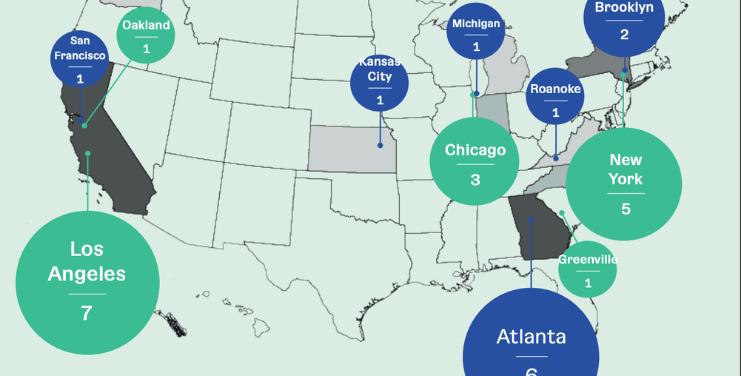As the push to buy Black continues, a frequently overlooked category for Black founders is SaaS. The Plug has created a growing list of Black-owned software tools. As business leaders create more intentionality around partnerships and patronage shifts to be more inclusive a reference guide of leading SaaS tools created and owned by Black founders is a way to quickly identify companies as businesses align their intentions with their actions to support Black founders and utilize the best in class tools.
At the start of the pandemic, The Plug identified Calendly as a company that was bucking the trend and growing amid massive tech layoffs. Since then, the company has raised $350 million at a $3 billion valuation. It is estimated that U.S. companies will spend $506 billion on enterprise software this year. Black-led software companies may begin to command a larger slice of the pie as the call for higher representation of Black professionals in STEM fields and technology continues.
This call goes beyond inclusion and meeting a quota to do business with a Black-owned company and encompasses a scenario in which Black-led companies thrive irrespective of race. A tech landscape with an increasing number of Black-led unicorns is a not-so-distant future. Research from The Plug‘s forthcoming 2020 report has identified at least half a dozen Black-led companies that are likely to achieve billion-dollar valuations in the next three to five years, the majority of these companies supplying enterprise-facing technologies.
Challenges of adoption and product-market fit will still exist for Black enterprise tech founders. The Plug surveyed 107 Black founders and CEOs about which software products they subscribe to, paid or unpaid, to power their own companies. Out of the top 20 most used products by Black founders, only one of the most widely used SaaS tools has a Black CEO. Black founders are also spending substantial amounts of money on these products each month. 45.8% of the respondents said that they spend more than $100 a month on these products, with 12.1% saying they spend more than $1,000 a month. While the small study reveals that even among Black founders intentionality does not always match action or where companies are choosing to spend their money the right enterprise contracts, even with smaller companies, can cascade into larger deals.
Our first 10 to 12 customers were gained from relationship building and then those customers introduced us to new customers, Domola Ogundipe, CEO and founder of Civic Eagle, a communications and information software company for policymakers, told The Plug. It was getting initial customers to test out our platform, give us feedback and eventually looped that into a paying contract.
CivicEagle has raised $2.3 million in venture backing and made its first acquisition of legislation tracking tool Openstates in January to grow the company’s capabilities. As new funding options open up for Black SaaS founders and their businesses, hiring and growth continue to be top of mind. As with Calendly, there is anecdotal evidence that many Black-led SaaS companies went against an overall downward trend since the pandemic. Civic Eagle nearly doubled its team from 10 employees to 17. A direct competitor to Calendly, Undock grew its team from four employees to 17 as it shifted to a permanently distributed workforce.
These successes don’t mitigate that 41% of Black-owned businesses that closed during the pandemic, but indicate that businesses providing digital tools for a digital economy accelerated by Covid-19 will be a mainstay during the pandemic and beyond. Black-owned businesses make software that will have to be proven and tested by the market. Those that go on to mass adoption will have done so against the backdrop of being in a category where many Black founders are overlooked.








